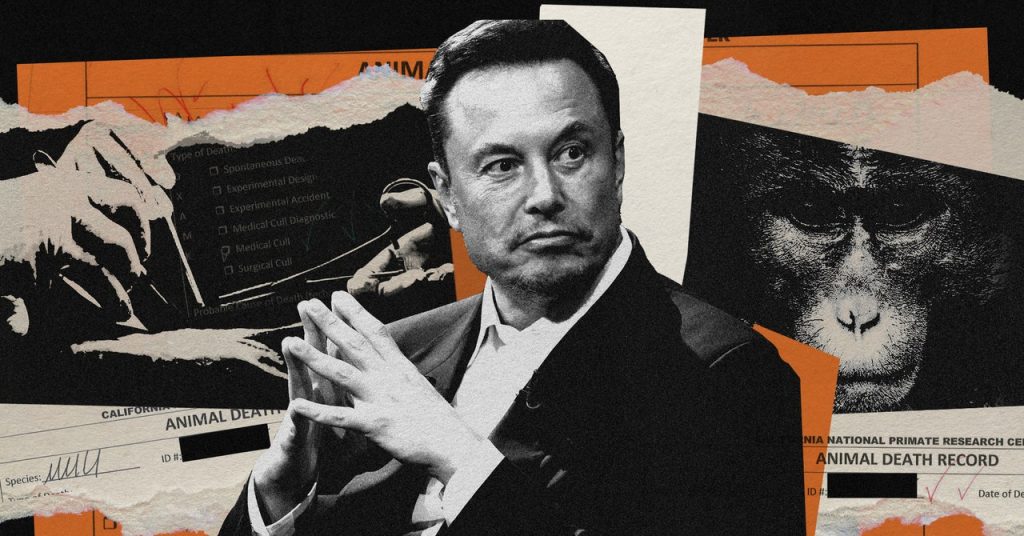Fresh allegations of potential securities fraud have been leveled at Elon Musk over statements he recently made regarding the deaths of primates used for research at Neuralink, his biotech startup. Letters sent this afternoon to top officials at the US Securities and Exchange Commission (SEC) by a medical ethics group call on the agency to investigate Musk’s claims that monkeys who died during trials at the company were terminally ill and did not die as a result of Neuralink implants. They claim, based on veterinary records, that complications with the implant procedures led to their deaths.
Musk first acknowledged the deaths of the macaques on September 10 in a reply to a user on his social networking app X (formerly Twitter). He denied that any of the deaths were “a result of a Neuralink implant” and said the researchers had taken care to select subjects who were already “close to death.” Relatedly, in a presentation last fall Musk claimed that Neuralink’s animal testing was never “exploratory,” but was instead conducted to confirm fully formed scientific hypotheses. “We are extremely careful,” he said.
Public records reviewed by WIRED, and interviews conducted with a former Neuralink employee and a current researcher at the University of California, Davis primate center, paint a wholly different picture of Neuralink’s animal research. The documents include veterinary records, first made public last year, that contain gruesome portrayals of suffering reportedly endured by as many as a dozen of Neuralink’s primate subjects, all of whom needed to be euthanized. These records could serve as the basis for any potential SEC probe into Musk’s comments about Neuralink, which has faced multiple federal investigations as the company moves toward its goal of releasing the first commercially available brain-computer interface for humans.
The letters to the SEC come from the Physicians Committee for Responsible Medicine, a nonprofit striving to abolish live animal testing. The group claims that Musk’s comments about the primate deaths were misleading, that he knew them “to be false,” and that investors deserve to hear the truth about the safety, “and thus the marketability,” of Neuralink’s speculative product.
“They are claiming they are going to put a safe device on the market, and that’s why you should invest,” Ryan Merkley, who leads the Physicians Committee’s research into animal-testing alternatives, tells WIRED. “And we see his lie as a way to whitewash what happened in these exploratory studies.”
Musk’s post on X about Neuralink’s monkeys has been viewed more than 760,000 times, and the Physicians Committee notes in its letters that when the SEC charged Musk with securities fraud related to Tesla in 2018, the agency argued that his account was a source of investor news. The SEC has jurisdiction over the sale of any securities, including those offered by privately held companies such as Neuralink. Recent filings show the company has raised more than $280 million from outside investors.
The SEC declined WIRED’s request to comment on the Physicians Committee’s letters. Neuralink did not respond to specific questions about Musk’s claims or a request for comment about the Physicians Committee’s allegations.
Within a year of its reported founding in March 2017, Neuralink acquired a large number of animal subjects to test its brain-chip implants. From September 2017 until late 2020, the company’s experiments were aided by the staff of the California National Primate Research Center (CNPRC), a federally funded bioresearch facility at UC Davis. Musk’s promise was to revolutionize prostheses and engineer an implant that would allow human brains to communicate wirelessly with artificial devices, and even each other.
Read the full article here






